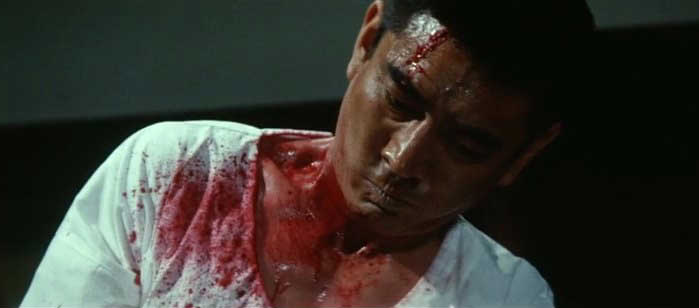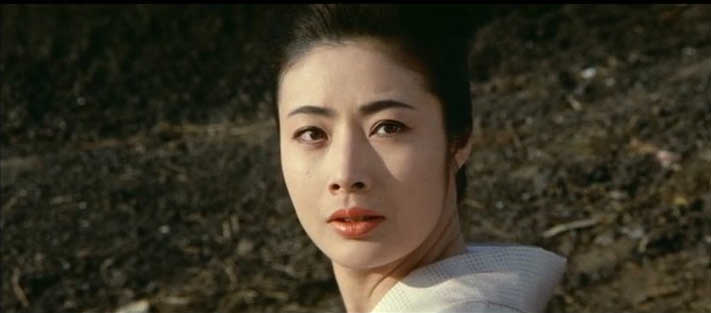Bloodiest Flower
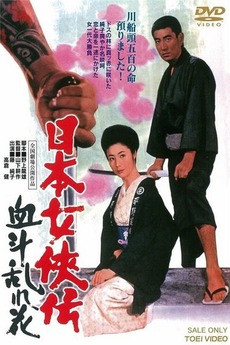
Director: Motohiro Torii
Year: 1971
Rating: 5.5
Aka - Nihon jokyo-den: ketto midare-bana
I have to admit my expectations were high
going into this because it stars those often paired actors, Junko Fuji and
Takakura Ken, who have been in some wonderful action films together. And
the title has the word "Bloodiest" in it - at least the English title. So
imagine my surprise and disappointment to discover that it was a melodrama
about coal. Coal. Mining for gold, diamonds or oil can be exciting but coal?
Only Trump could get excited about digging up coal. This is the third Japanese
film that I have seen lately that had coal as a part of the narrative. They
all take place in the late 1800's when after a few hundred years of isolation
Japan had opened itself to the outside world and realized how far behind
they were technically and went into a 100 yard dash to catch up. And they
needed coal. Lots of coal.
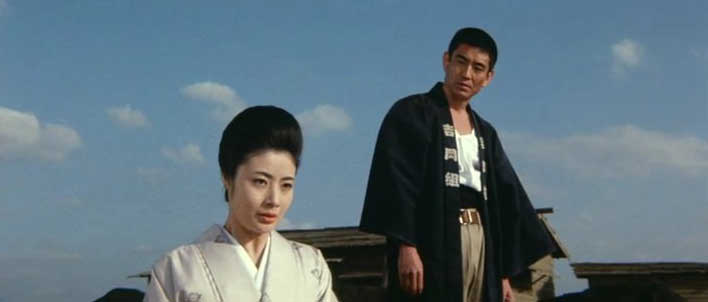
Tei's (Junko Fuji) husband is obsessed
about opening a coal mine and neglects her and his business. He buys a mountain
for 300 yen. I expect the yen was worth a lot more back then. And begins
to burrow but it comes crashing down on him and kills him. Now a widow, Tei
decides against the advice of everyone to keep the mine going. A woman running
a coal mine? That just wasn't done. And when she goes to ask for miners from
a fellow owner, he tries to rape her. But one of the boatmen who transports
coal is standing nearby and intervenes much to the discomfort of the others.
This is Koji (Takakura Ken) who is later attacked by all these men and has
to kill a few. And for that he sent off to jail for 8 years. Tei continues
to struggle with making a go of the mine over all those years.
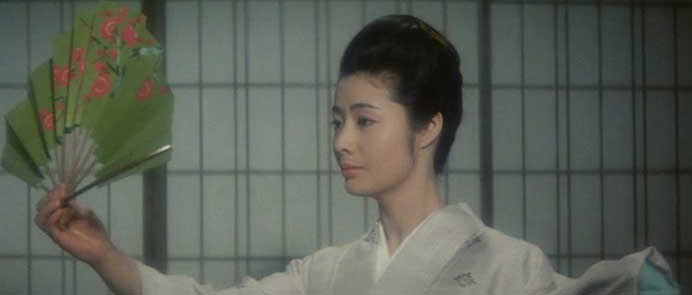
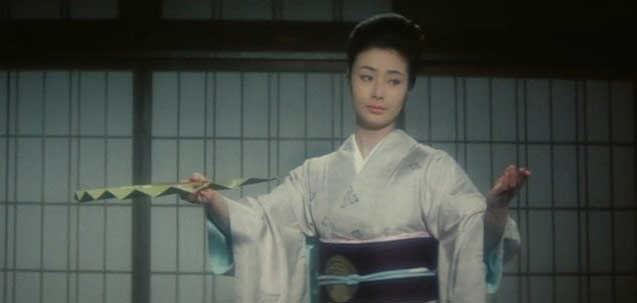
So where does the Bloodiest come into play?
At the very end when Koji is out of jail and events force him to take that
long lonely walk with a song playing in the background. He is headed for
revenge of the best kind - up close and bloody. But it was a long time coming
if that is why you came to this film. The rest is nearly all melodrama with
the two of them clearly in love but unable to say so and the villain slowly
putting on the pressure to break her. At 147 minutes it is a good 15 minutes
longer than most of the types of period films from Toei and it feels like
it at times. I also admit that I am a Junko Fuji action fan and seeing her
in such a subdued traditional role did not hit my pleasure zone. I kept waiting
for her to take out a sword and get down to business but she never does.
And bonus points if she does it in a kimono. Still it is always enjoyable
seeing these two actors on the screen together. The ending shot is a little
bit poignant - years later a train hauls the coal away - the boatmen are
no longer needed - progress is coming to Japan.
